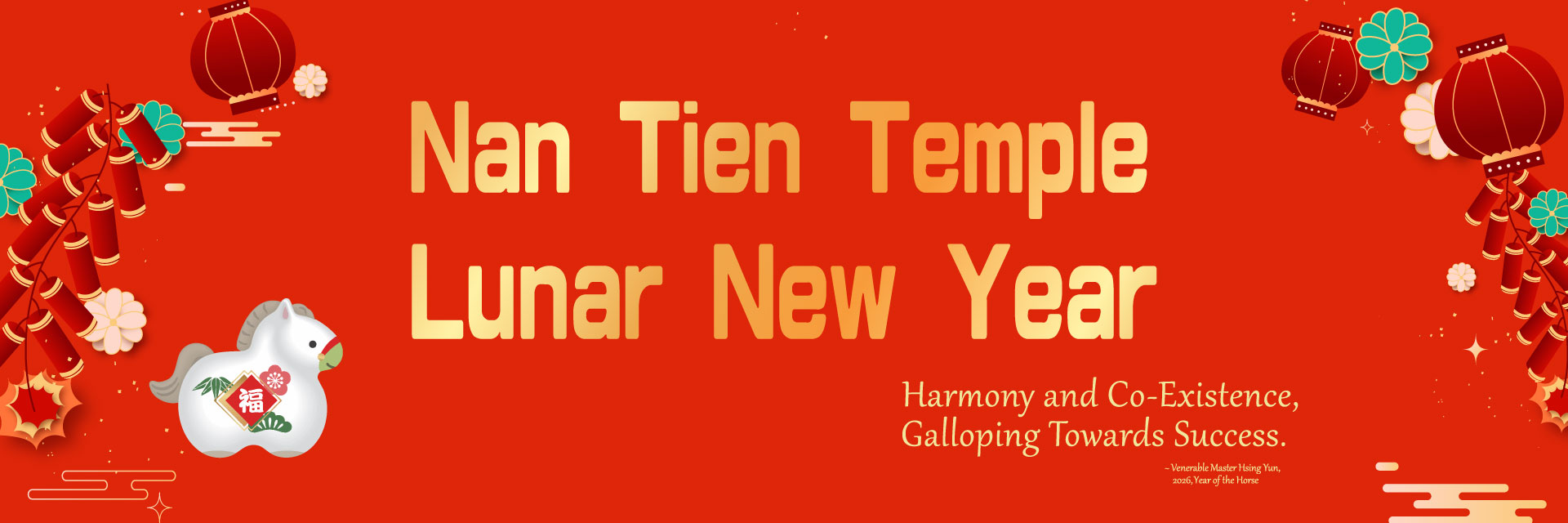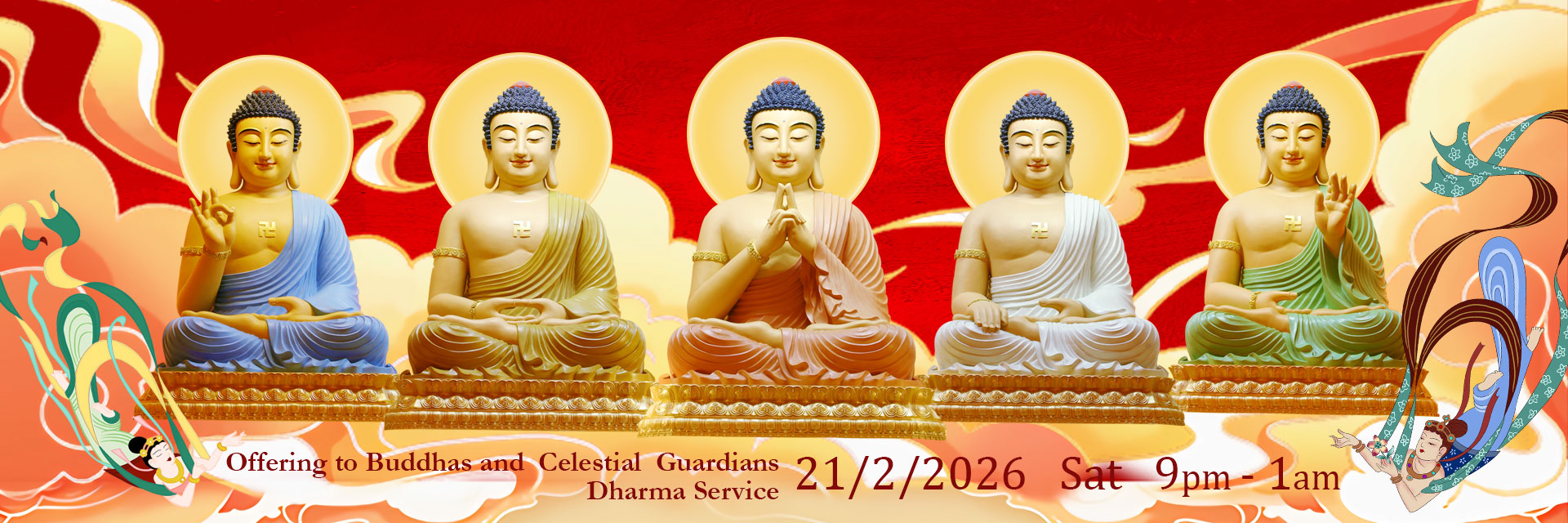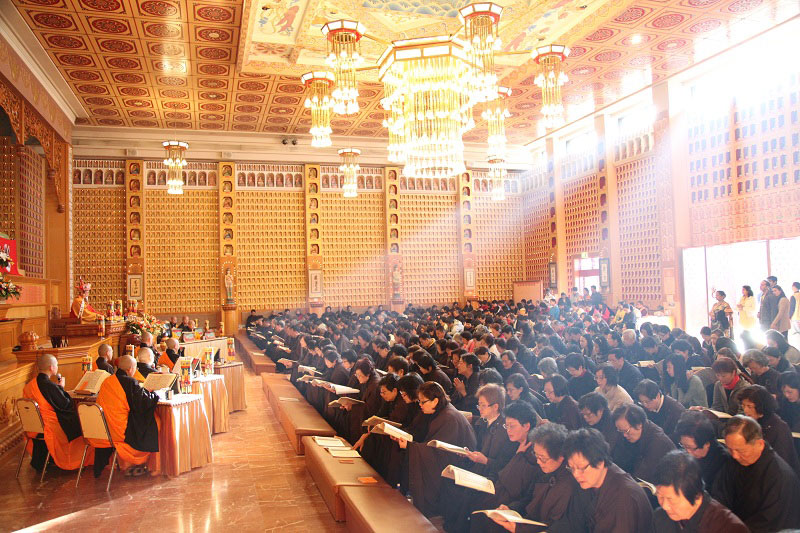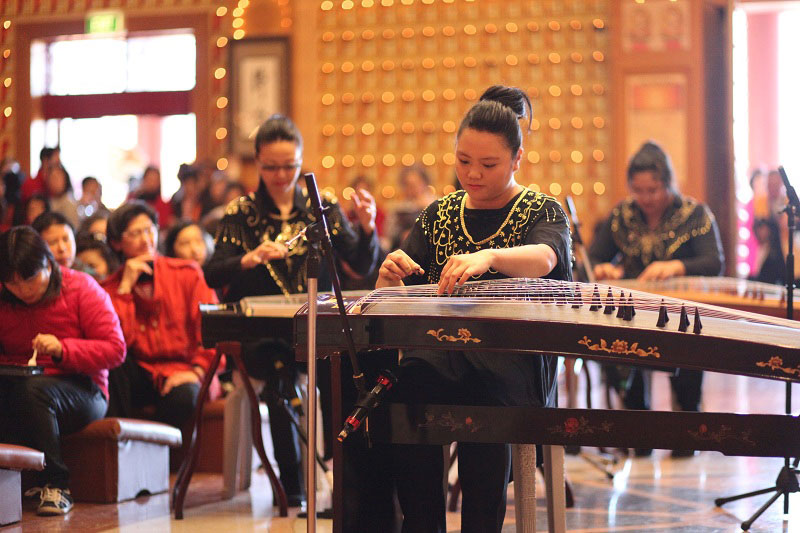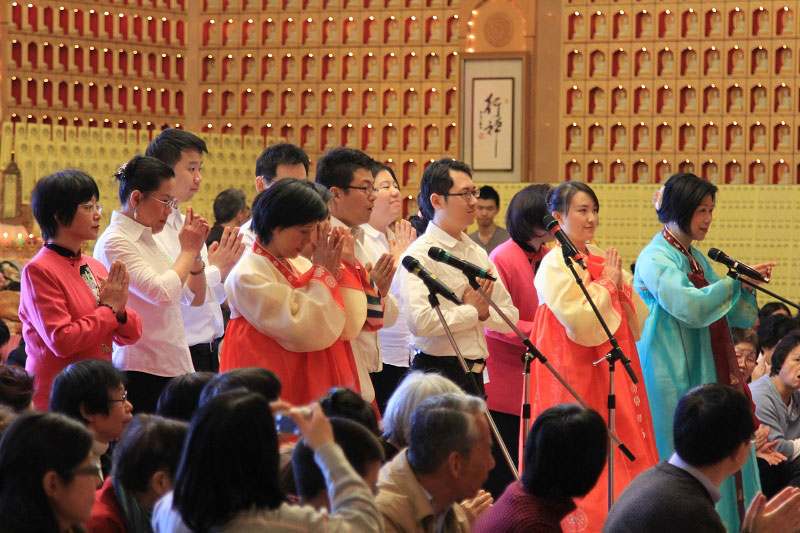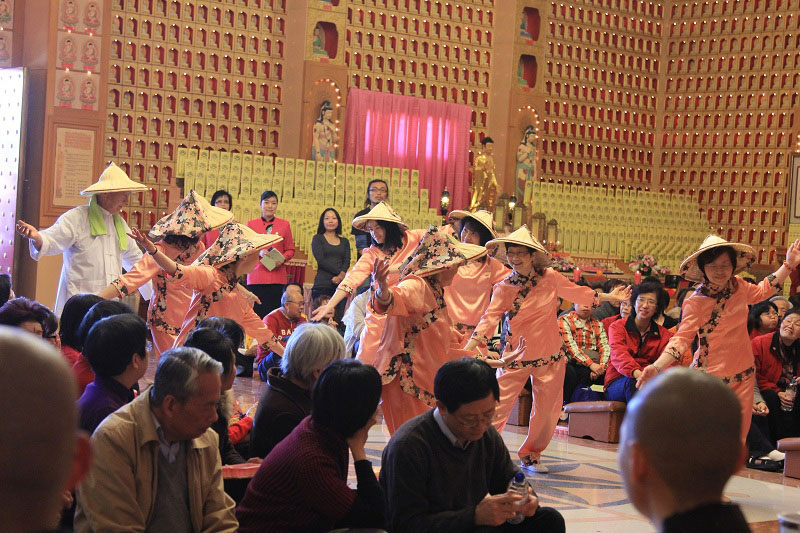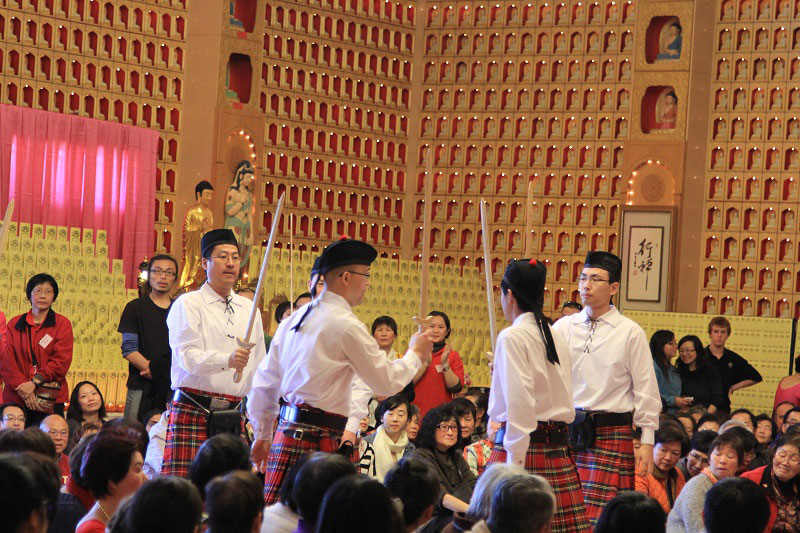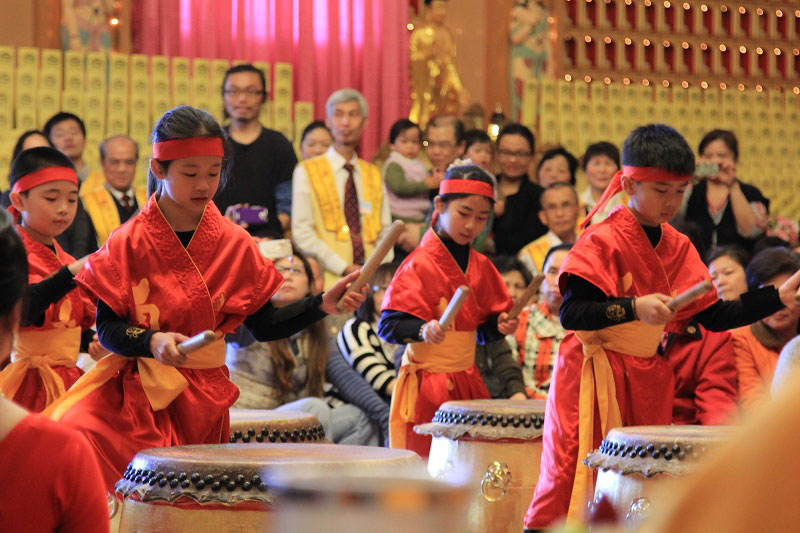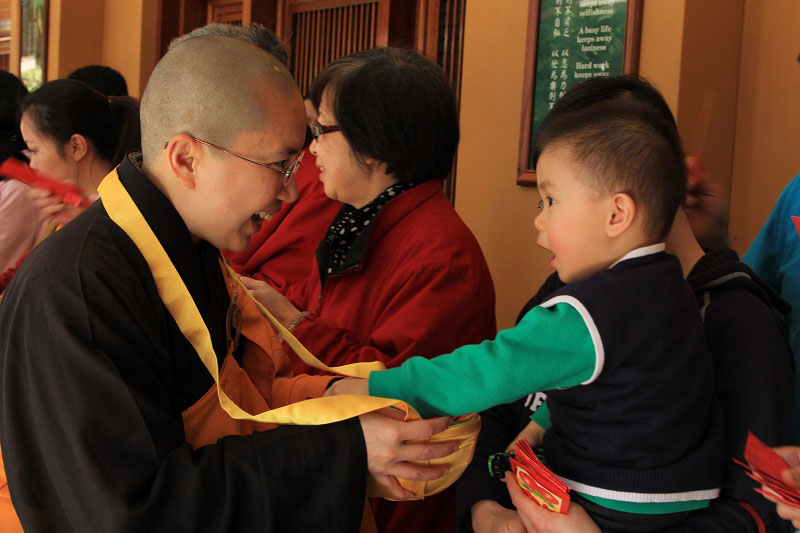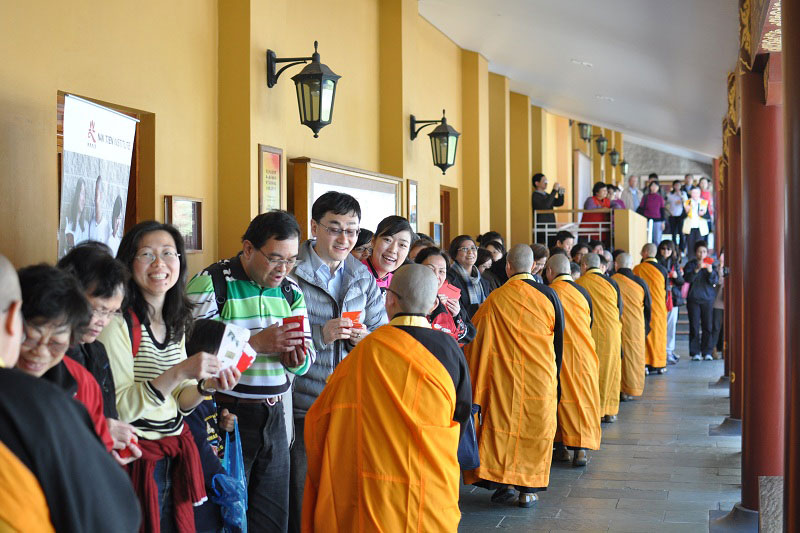| Ullambana Festival is also called the Sangha Day, or the Buddha’s joyful day. It is the day when the Sangha community had completed their summer retreat. As Buddhists, we should uphold the Buddha’s teaching of filial piety by supporting the Sangha. This is a very meaningful and meritorious act as it allows the Sangha to practice without obstructions and cultivate merits for ourselves and our ancestors. The Origin and Meaning of Ullambana and Making Offerings to Sangha Ullambana Sangha Offering Ceremony is for Buddhist laity to offer a meal to the Buddha and the Sangha as an act of reverence. According to the Ullambanapatra Sutra, when Maudgalyayana, a chief disciple of Sakyamuni Buddha, was unable to alleviate the suffering if his mother in the realm of hungry ghosts, the World-Honored One told him that the only way to deliver his mother from the pains of suffering is to rely upon the strength of monastics of all directions in their cultivation of meritorious virtues. The Buddha instructed his disciples to dedicate an elaborate offering of food and fruits to all Sangha members in the names of his parents from the past seven lifetimes as well as the present lifetime because the practice of Sangha offering has the power to transform and deliver all sentient beings. The merits thus acquired could liberate the deceased from the three suffering realms and allow the living to enjoy a life of abundance, good fortune and longevity. Therefore, by observing the practice of Ullambana Sangha Offering, all Buddhists can deliver their parents from the miseries of the three suffering realms. |
(Source: Hsi Lai Temple)
Please click the button [+] below to read more
| In the seventh month of the Lunar calendar which corresponds to between August and September each year, Mahayana Buddhists worldwide celebrate two very important festivals: Ullambana Festival - Buddha's Joyful Day or Sangha Day celebrated on the 15th day of the Seventh Lunar Month Ksitigarbha Bodhisattva's Birthday celebrated on the 30th day of the Seventh Lunar Month Ullambana (Yu-lan) may sometimes appears as Lambana, or Avalamba, which in Sanskrit means ¨hanging down,〃 ¨depending,〃 ¨support〃; it is interpreted as ¨to hang upside down〃, or ¨to be in suspense〃, referring to the extreme suffering in purgatory. The word ¨pen〃 is regarded as a Chinese word, not part of the transliteration, meaning a vessel filled with offerings of food. As a transliteration of the Sanskrit word, Ullambana means "deliverance from suffering," and specifically refers to the salvation of anguished souls in Hell. This concept originates from the Buddhist legend of " Maudgalyayana (Moginlin or Mogganalla) saving His Mother from Hades." Hence, the Ullambana festival reinforces the important concept of filial piety which is very deep-rooted in Asian culture. According to Buddhist legend, Maudgalyayana, who was one of the ten great disciples of the Buddha, discovered through his meditative powers that his mother, who had committed severe bad karma of killing, had been reborn in the realms of pain and suffering. When he learnt that her spirit was being subjected to hunger and misery, he decided to go to the netherworld to relieve her of her suffering. Once he went there, Maudgalyayana found his mother starving and in a pitiful state. He offered her food, but when she tried to eat it, the food turned to smouldering pieces of charcoal. Maudgalyayana was distressed and sought advice and help from his master, the Buddha. Buddha told him that his mother's offences were deep-rooted and that he alone wiould not be able to ease her sufferings. The Buddha advised Maudgalyayana to make offerings of five fruits, incense, oil, lamps, candles, beds and bedding to the assembled members of the Order and pray along with them for the liberation of his mother's soul. The Buddha also told Maudgalyayana that by making such an offering, not only his mother but his forefathers, kith and kin would also escape suffering and attain eternal bliss and salvation. The day on which Maudgalyayana performed the act of compassionate filial conduct and brought salvation to his forefathers was celebrated as Ullambana. It is observed on the 15th day of the seventh Buddhist lunar month. This day is marked as the Buddhaˇs Joyful day or Sangha Day. On this day, Buddhists offer prayers both to their departed forefathers and to their living parents and elders. It is generally believed that one who performs a good deed accumulates spiritual merit. It is considered an even more pious act when the merit earned is shared with departed souls, which will help them to be reborn in good realms and alleviate their suffering. Ullambana is celebrated by Buddhists the world over. Though there are slight variations in certain customs and beliefs, the fundamental rituals remain essentially the same. Besides offering prayers to the souls of deceased ancestors and welfare of their parents, people carry offerings such as food, medicine and clothes for monks and nuns in monasteries. This celebration is an act of thanksgiving to the sangha community for their blessings and prayers. At the end of the seventh lunar month on the 30th day, Mahayana Buddhists over the world celebrate the birthday of Ksitigarbha Bodhisattva. The celebration usually took the form of a pilgrimage to the Shrine of Ksitigarbha Bodhisattva, followed by chanting of the Ksitigarbha Bodhisattvaˇs name -From the book, Entry Into the Profound: a first step to understanding Buddhism and the booklet, The Significance of Taking Refuge in the Triple Gem & the Five Precepts published by International Buddhist Association of Australia Incorporated. |



